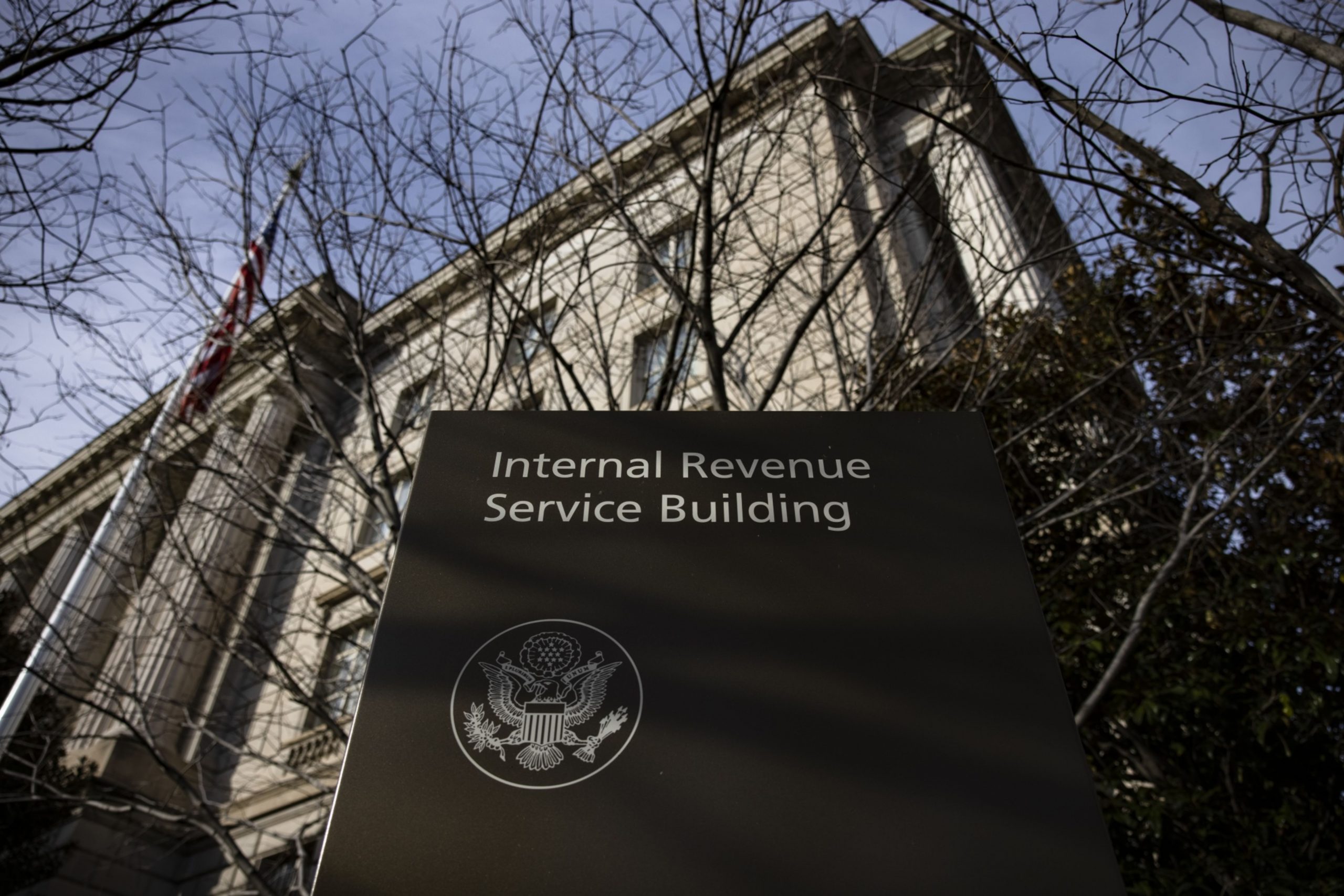
The head of the IRS calculated that tax evasion in the U.S. may total $1 trillion a year, a figure that is multiples higher than previous estimates from the federal government.
Internal Revenue Service Commissioner Chuck Rettig told a Senate panel Tuesday that previous tallies of the tax gap — which came to a cumulative amount of about $441 billion for the three years through 2013 — didn’t include some tax evasion-techniques that weren’t on their radar at the time.
New estimates include the use of cryptocurrency, he said. Offshore tax evasion, illegal income that goes undetected by the IRS and underreporting from pass-through businesses also contribute to a larger than previously known tax gap, Rettig said.
“I think it would not be outlandish to believe that the actual tax gap could approach and possibly exceed $1 trillion per year,” Rettig told the Senate Finance Committee.
The ballooning difference between the tax dollars owed and what is actually collected by the IRS has become a point of focus on Capitol Hill, where a rising number of lawmakers are coming to see more aggressive tax enforcement as a way to boost government revenue.
Senate Finance Chairman Ron Wyden said the $1 trillion figure is “jaw dropping” and a “wake-up call” for lawmakers. The Oregon Democrat said he’s already spoken with the committee’s top Republican, Senator Mike Crapo of Idaho, about bipartisan ways to address tax evasion. Senator Rob Portman, an Ohio Republican, announced plans to introduce legislation to address crypto-currency users dodging taxes, and Massachusetts Democratic Senator Elizabeth Warren said she is working on a bill that would direct mandatory funding to the IRS so that the agency’s budget for auditors wouldn’t fluctuate year-to-year.
Enforcement focus
President Joe Biden has proposed to strengthen corporate-tax enforcement as part of his proposal to pay for his $2.25 trillion, infrastructure-led spending plan. He also plans to outline individual-tax proposals in the coming weeks. Biden’s budget proposal last week also called for an additional $900 million for expanded audits.
Rettig said that an extra $1 billion for enforcement could let the IRS hire 4,875 front-line audit personnel and update computer systems to help identify fraud and tax evasion. He said rebuilding the agency’s auditing capability will be a multi-year process, after the IRS lost 17,000 enforcement-related employees in the past decade.
“We want to get there, but we do need your help,” Rettig said.
Strengthening tax-reporting requirements and the regulations overseeing tax-return preparers would help the IRS stop fraud and close the tax gap, Rettig said. About 99 percent of taxes are paid to the IRS when there is automatic withholding and reporting to the agency, but only 45% of what’s owed gets paid when those are lacking, he said.
Wealthy evaders
Most individuals earn their income through wages, where taxes are automatically deducted from each paycheck. However, income from pass-through entities, such as partnerships and limited liability corporations isn’t subject to automatic withholding, giving the owners more opportunity to skirt tax obligations.
A study released last month, which included two IRS officials as authors, found that the richest 1 percent of Americans don’t report about 20 percent of their income to the government. Those individuals are able to use pass-through businesses and offshore structures to shield their income from the IRS’s view, the study said. Collecting that money would boost tax collections by $175 billion a year, the study found.


